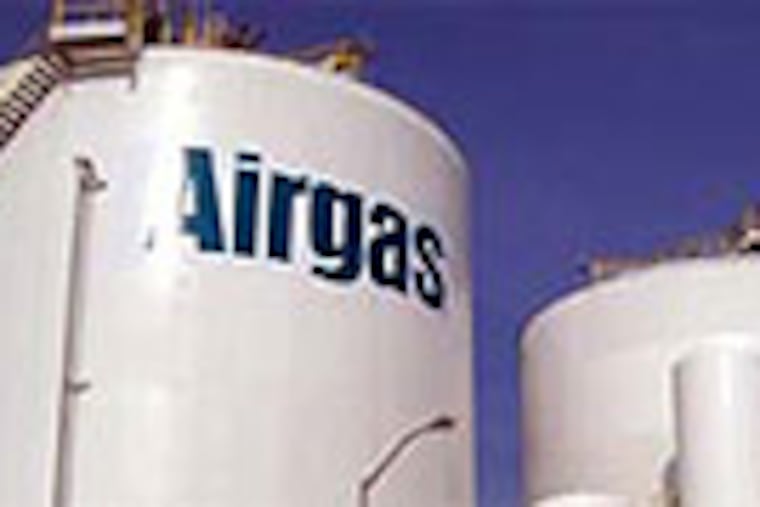Delaware judge to decide on Airgas 'poison pill'
A court hearing in southern Delaware on Tuesday is expected to bring the long-running effort by Air Products & Chemicals Inc. in Allentown to buy Radnor's Airgas Inc. for more than $5.9 billion closer to its conclusion.

A court hearing in southern Delaware on Tuesday is expected to bring the long-running effort by Air Products & Chemicals Inc. in Allentown to buy Radnor's Airgas Inc. for more than $5.9 billion closer to its conclusion.
Air Products is asking a Delaware Chancery Court judge to throw out a provision in Airgas' bylaws that effectively prevents anyone from buying more than 15 percent of Airgas' shares without the board's blessing.
If Chancellor William B. Chandler rules in favor of Air Products, the decision - likely to be appealed to the Delaware Supreme Court - would be a landmark in the obscure world of rules governing the balance of power between boards of directors and stockholders.
The basic question is this: When does the right of shareholders to vote on the fate of a firm supersede the obligation of directors to do what they think is in the long-term interests of the corporation and all shareholders?
Specifically at issue is Airgas' so-called "poison pill." The measure has allowed Airgas, a distributor of industrial gases and safety supplies, to block an unwanted takeover attempt by Air Products, which publicly offered $60 a share, or $5.1 billion for Airgas on Feb. 5 of last year.
Air Products' latest, and what it says is its final, offer is $70 a share, 17 percent more than the initial offer.
The Airgas board of directors, including three who were nominated by Air Products and elected to the board at an annual meeting in September, have maintained that the company is worth at least $78 a share, or $6.6 billion.
Poison pills were devised in the early 1980s to ward off what could have been seen as lowball takeovers. Shareholders of companies with poison pills cannot exceed a certain ownership percentage, typically between 10 percent and 20 percent, without triggering issuance of a large number of shares. That would make the takeover prohibitively expensive.
The tactic is less common than it used to be. Since 2007, the percentage of companies in the Standard & Poor's 500 stock index that have poison pills has fallen to 14 percent from 31 percent, according to Institutional Shareholder Services Inc., which tracks corporate-governance issues.
The hearing scheduled for Tuesday in Georgetown, Del., before Chandler is a follow-up to a trial in October, after which Chandler ruled in favor of Air Products. He said that Airgas' 2011 annual shareholder meeting could be held last month, just four months after the 2010 annual meeting.
But the Delaware Supreme Court overruled him, leading to Tuesday's hearing.
"The poison pill has been upheld in Delaware courts for 25 years," said Francis Pileggi, an attorney with Fox Rothschild L.L.P., of Wilmington, but he and other corporate-governance experts said they would not be surprised to see Chandler rule against it.
The vote by Airgas shareholders in September to hold the next annual meeting in January and to replace the three incumbent directors who were up for election was a vote to sell and the board should follow that wish, said Charles M. Elson, a corporate-governance expert at the University of Delaware.
Another governance expert, Stephen Bainbridge, of the UCLA School of Law, wrote last month that shareholder votes are part of a firm's decision-making machinery, but merely an accountability tool.
"While notions of shareholder democracy permit powerful rhetoric, corporations are not New England town meetings," he said.